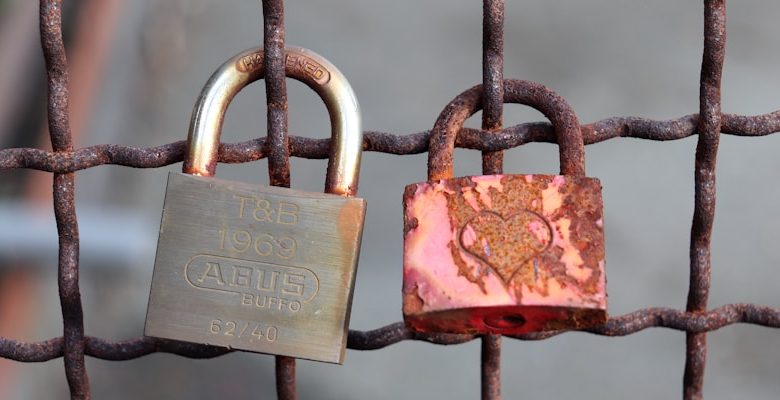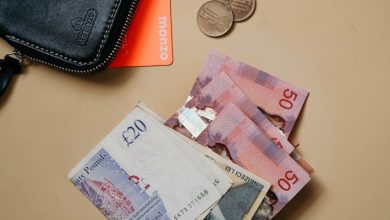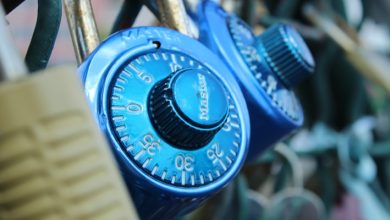The Dangers of Sharing Your Crypto Information Online

- Risks of exposing your crypto wallet address
- Importance of keeping your private keys secure
- How hackers target individuals sharing crypto information
- Protecting your digital assets from online threats
- Common mistakes that lead to crypto theft
- Steps to enhance the security of your cryptocurrency accounts
Risks of exposing your crypto wallet address
Exposing your crypto wallet address online can pose significant risks to your security and financial well-being. When you share your wallet address publicly, you make it easier for hackers to target you and potentially steal your cryptocurrency. This can lead to financial losses and identity theft if not addressed promptly.
Furthermore, sharing your wallet address can also make you a target for phishing scams and social engineering attacks. Scammers can use this information to trick you into revealing sensitive data or gaining unauthorized access to your crypto assets. It’s crucial to keep your wallet address private to prevent falling victim to these malicious activities.
Moreover, by exposing your wallet address, you may inadvertently reveal your financial transactions and investment activities to the public. This lack of privacy can potentially attract unwanted attention and speculation from individuals or organizations monitoring blockchain activities. Protecting your financial information is essential to safeguard your assets and maintain confidentiality.
Importance of keeping your private keys secure
One of the most crucial aspects of safeguarding your cryptocurrency assets is keeping your private keys secure. Private keys act as the access codes to your digital funds, and if they fall into the wrong hands, your assets can be easily stolen. Therefore, it is essential to follow best practices for storing and protecting your private keys.
When it comes to securing your private keys, there are several key steps you can take to minimize the risk of theft or unauthorized access. Firstly, it is important to never share your private keys with anyone, including friends, family, or online acquaintances. By keeping your private keys confidential, you reduce the likelihood of them being compromised.
Another crucial aspect of private key security is storing them in a safe and secure location. Consider using hardware wallets or encrypted USB drives to store your private keys offline, away from potential hackers or cyber threats. Additionally, make sure to regularly back up your private keys in multiple secure locations to prevent permanent loss.
In conclusion, the importance of keeping your private keys secure cannot be overstated. By following best practices for private key security, you can significantly reduce the risk of unauthorized access to your cryptocurrency assets. Remember, the security of your private keys is paramount to protecting your digital wealth.
How hackers target individuals sharing crypto information
When it comes to how hackers target individuals sharing crypto information, there are several common tactics they use to exploit vulnerabilities. One way hackers can target individuals is through phishing attacks, where they send fraudulent emails or messages pretending to be from a legitimate source, such as a cryptocurrency exchange or wallet provider. These messages often contain links that, when clicked on, can lead to the victim unknowingly sharing their login credentials or other sensitive information.
Another way hackers target individuals sharing crypto information is through social engineering tactics. This involves manipulating or deceiving individuals into divulging confidential information, such as passwords or private keys. For example, hackers may pose as a trusted individual or authority figure to gain the victim’s trust and trick them into sharing their crypto information.
Furthermore, hackers may also use malware to target individuals sharing crypto information online. By infecting a victim’s device with malicious software, hackers can gain unauthorized access to their crypto wallets or exchanges. This can result in the theft of funds or sensitive information, putting the victim at risk of financial loss.
Protecting your digital assets from online threats
Protecting your digital assets from online threats is crucial in today’s interconnected world. There are several steps you can take to safeguard your crypto information and minimize the risk of falling victim to cyber attacks.
One of the most important measures you can implement is to use a secure and unique password for your crypto accounts. Avoid using easily guessable passwords or reusing the same password across multiple accounts, as this can make it easier for hackers to gain access to your information.
Another key strategy is to enable two-factor authentication (2FA) wherever possible. This adds an extra layer of security to your accounts by requiring a second form of verification, such as a code sent to your phone, in addition to your password.
It’s also important to be cautious about the information you share online. Avoid posting sensitive details about your crypto holdings or transactions on social media or other public forums, as this can make you a target for scammers and hackers.
Regularly updating your security software and keeping your devices protected with firewalls and antivirus programs can also help prevent malicious attacks on your digital assets.
By taking these proactive steps to protect your crypto information online, you can reduce the risk of becoming a victim of cybercrime and ensure that your digital assets remain safe and secure.
Common mistakes that lead to crypto theft
When it comes to keeping your cryptocurrency safe, there are common mistakes that can lead to theft if you’re not careful. One of the biggest mistakes people make is sharing their private keys or seed phrases online. By sharing this sensitive information, you are essentially giving access to your crypto wallet to anyone who sees it.
Another mistake to avoid is using public Wi-Fi networks to access your cryptocurrency accounts. Public Wi-Fi networks are not secure, and hackers can easily intercept your data and steal your crypto information. It’s important to always use a secure and private network when dealing with your cryptocurrency.
Additionally, falling for phishing scams is a common mistake that can lead to crypto theft. Be cautious of any emails or messages asking for your crypto information, and always double-check the sender’s information before providing any sensitive data.
Lastly, not using two-factor authentication (2FA) on your crypto accounts is a mistake that can make it easier for hackers to gain access. By adding an extra layer of security with 2FA, you can greatly reduce the risk of unauthorized access to your accounts.
Steps to enhance the security of your cryptocurrency accounts
To enhance the security of your cryptocurrency accounts, there are several important steps you can take. Firstly, it is crucial to use a strong and unique password for each of your accounts. Avoid using easily guessable passwords or reusing the same password across multiple platforms. Additionally, consider enabling two-factor authentication (2FA) for an extra layer of security. This will require you to provide a second piece of information, such as a code sent to your phone, in addition to your password when logging in.
Another important measure to protect your cryptocurrency accounts is to be cautious about the information you share online. Avoid posting sensitive details about your accounts or transactions on social media or public forums. Be wary of phishing attempts, where scammers try to trick you into revealing your login credentials. Always verify the legitimacy of the websites you are using and double-check the URLs to ensure you are on the correct site.
Regularly monitor your account activity and keep an eye out for any suspicious transactions. If you notice any unauthorized activity, report it immediately to your cryptocurrency exchange or wallet provider. Consider using a hardware wallet for added security, as these devices store your private keys offline and are less vulnerable to hacking attempts.
Lastly, stay informed about the latest security threats and best practices for protecting your cryptocurrency accounts. By staying vigilant and proactive, you can reduce the risk of falling victim to online scams and theft. Remember that the security of your cryptocurrency accounts is ultimately in your hands, so take the necessary precautions to safeguard your investments.



